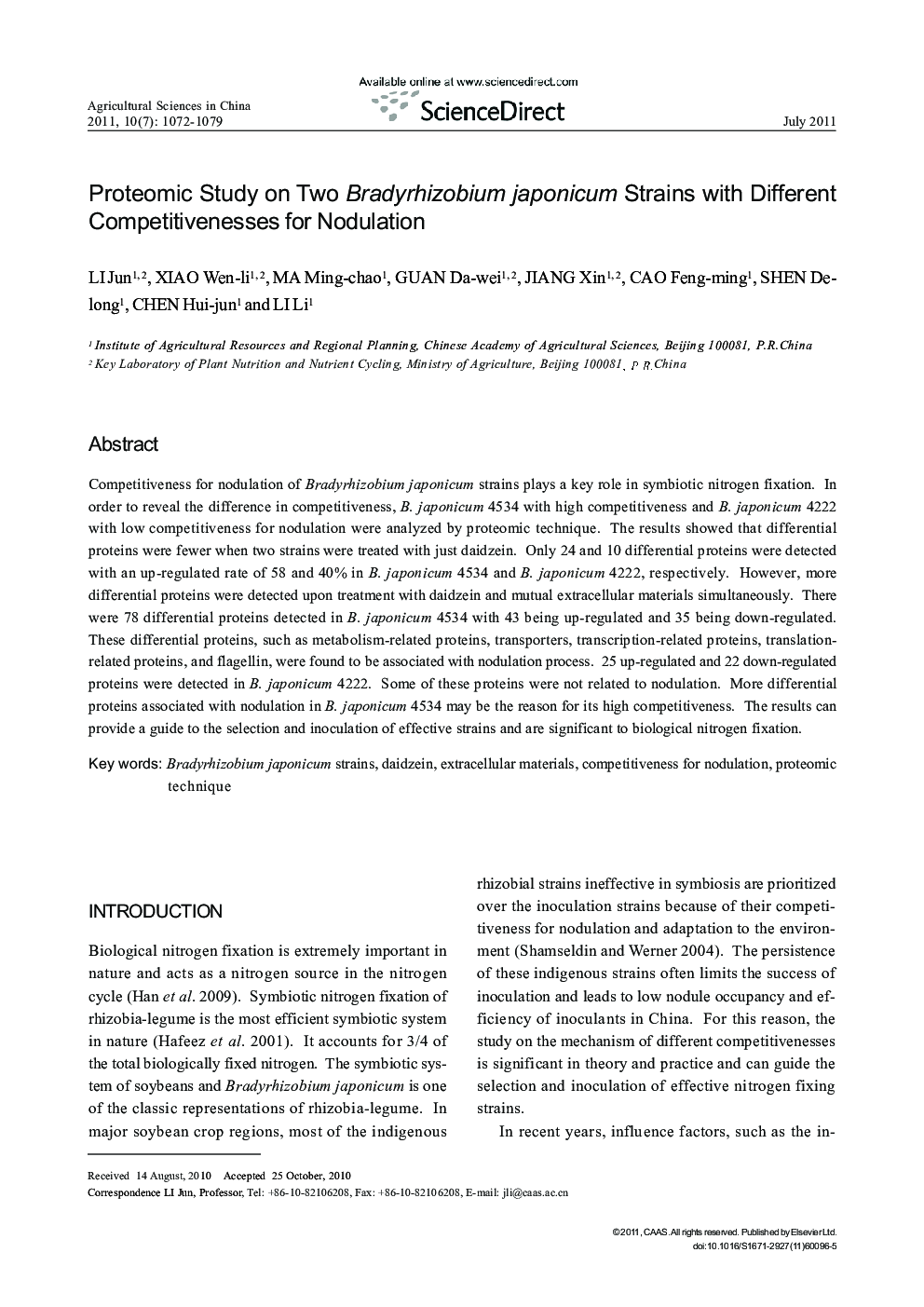| Article ID | Journal | Published Year | Pages | File Type |
|---|---|---|---|---|
| 4489868 | Agricultural Sciences in China | 2011 | 8 Pages |
Competitiveness for nodulation of Bradyrhizobium japonicum strains plays a key role in symbiotic nitrogen fixation. In order to reveal the difference in competitiveness, B. japonicum 4534 with high competitiveness and B. japonicum 4222 with low competitiveness for nodulation were analyzed by proteomic technique. The results showed that differential proteins were fewer when two strains were treated with just daidzein. Only 24 and 10 differential proteins were detected with an up-regulated rate of 58 and 40% in B. japonicum 4534 and B. japonicum 4222, respectively. However, more differential proteins were detected upon treatment with daidzein and mutual extracellular materials simultaneously. There were 78 differential proteins detected in B. japonicum 4534 with 43 being up-regulated and 35 being down-regulated. These differential proteins, such as metabolism-related proteins, transporters, transcription-related proteins, translation-related proteins, and flagellin, were found to be associated with nodulation process. 25 up-regulated and 22 down-regulated proteins were detected in B. japonicum 4222. Some of these proteins were not related to nodulation. More differential proteins associated with nodulation in B. japonicum 4534 may be the reason for its high competitiveness. The results can provide a guide to the selection and inoculation of effective strains and are significant to biological nitrogen fixation.
